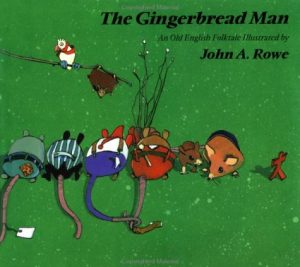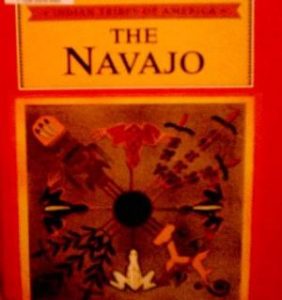 Examines the history, traditional lifestyle, and current situation of the Navajo Indians.
Examines the history, traditional lifestyle, and current situation of the Navajo Indians.
United States
Materials from United States of America
Yo, Naomi Leon
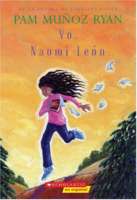
Naomi Soledad Leon Outlaw has had a lot to contend with in her young life, her name for a start. Then, there are her clothes (sewn in polyester by Gram), her difficulty speaking up, and her status at school as “nobody special.” But according to Gram, most problems can be overcome with positive thinking. And with Gram and her little brother, Owen, life at Avocado Acres Trailer Rancho in California is happy and peaceful…until their mother reappears after seven years, stirring up all sorts of questions and challenging Naomi to discover who she really is.
Spanish title: Yo, Naomi Leon
Naomi Soledad Leon Outlaw ha tenido que enfrentarse a mucho en su corta vida, empezando por su nombre. Tambien esta el problema de su ropa (hechas por su abuela en tela de poliester), su timidez y la fama que tiene en la escuela de no ser nadie especial. Pero segun su abuela, la mayoria de los problemas se solucionan con mentalidad positiva. Y su vida, junto a su abuela y su pequeno hermano, Owen, en el parque de casas moviles Avocado Acres, es tranquila y feliz… hasta que su mama aparece luego de siete anos, creando confusion y retando a Naomi a que averigue quien es.
The Jewish Kids’ Hebrew-English Wordbook
Opuestos (Opposites)
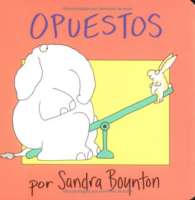
Serious silliness for all ages. Artist Sandra Boynton is back and better than ever with completely redrawn versions of her multi-million selling board books. These whimsical and hilarious books, featuring nontraditional texts and her famous animal characters, have been printed on thick board pages, and are sure to educate and entertain children of all ages.
Hairs/Pelitos
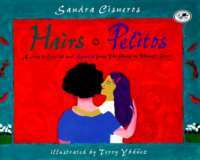
This vignette from Sandra Cisneros’s best-selling The House on Mango Street shows, through simple, intimate portraits, the diversity among us. Bilingual
Alexander And The Terrible Horrible No Good Very Bad Day – Spanish: Alexander And The Terrible Horrible No Good Very Bad Day
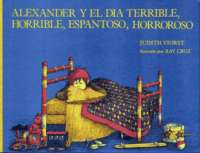
Alexander Y El Dia Terrible, Horrible, Espantoso, Horroroso.
Alexander se dio cuenta de que iba a ser un dia terrible couando se desperto y se encontro chicle en el pelo. Y aun fue peor…
Su mejor amigo lo abandono. No ten ia postre en su bolsa del almuerzo. Y para colmo, habia habas verdes en la comida y besos en la television!
Este cuento clasico de Judith Viorst, ahora en espanol, sera sin lugar a duda del agrado de los lectores de todas las edades, como lo ha sido hasta ahora.
Cinco Monitos Brincando En La Cama/Five Little Monkeys Jumping On The Bed (Five Little Monkeys Picture Books)
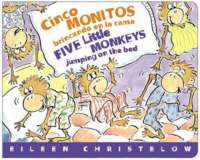
Even doctor’s orders won’t stop these silly monkeys from having their fun. But you’ll never guess what Mama does when the Five Little Monkeys finally do fall asleep! Here is the most popular Five Little Monkeys story, available for the first time in a bil
Dear Peter Rabbit – Spanish (Libros Colibri)
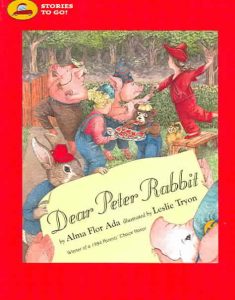 Is it possible that the world’s most popular storybook characters know each other? Alma Flor Ada charms readers with this story told through a collection of letters that reveal the friendship between favorite storybook characters. Bright illustrations capture the humor of the interwoven stories, where all the characters meet at a birthday party for Goldilocks. Full color.
Is it possible that the world’s most popular storybook characters know each other? Alma Flor Ada charms readers with this story told through a collection of letters that reveal the friendship between favorite storybook characters. Bright illustrations capture the humor of the interwoven stories, where all the characters meet at a birthday party for Goldilocks. Full color.
Los Nez Perce (Pueblos Americanos Nativos) (Spanish Edition)
Examines the history, traditional lifestyle, and current situation of the Nez Percâe Indians.
Goodnight Moon (Spanish Edition): Buenas Noches, Luna
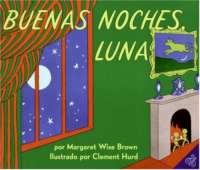
Buenas noches, Luna
por Margaret Wise Brown
Ilustrado por Clement Hurd
En una gran habitación verde, arropado en su cama, está un conejito.
— Buenas noches, habitación.
— Buenas noches, Luna — dice el conejito.
Y así sucesivamente, le da las buenas noches a todas las cosas que reconoce en su cuarto: al cuadro de los tres ositos sentaditos en sus sillas, a los relojes y a los calcetines, a los gatitos juguetones y a los lindos mitones.
En este cuento clásico de la literatura infantil, adorado por generaciones de niños, la poesía que encierra su texto y la ternura de sus bellas ilustraciones con-vierten a éste en un libro ideal para culminar el día.

